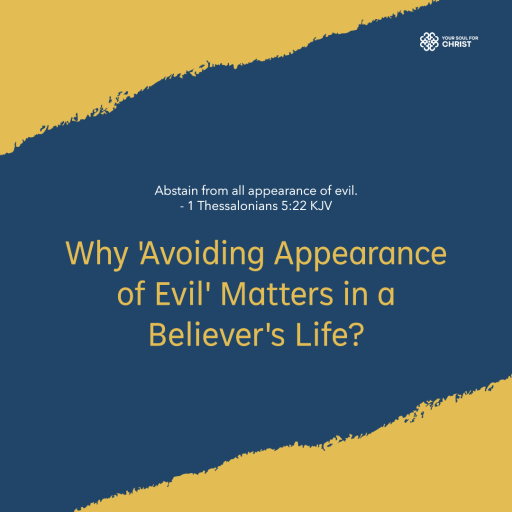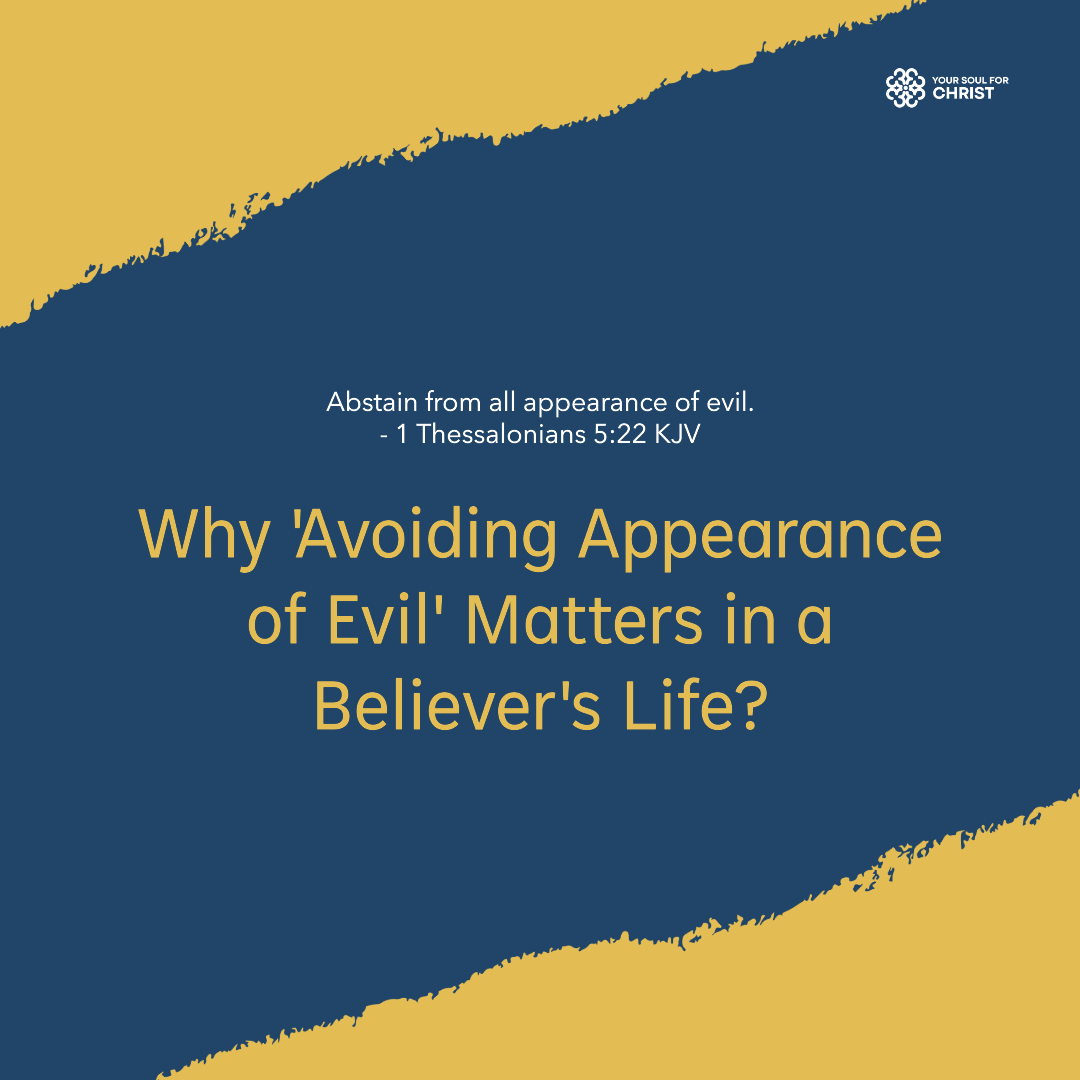Abstain from all appearance of evil.
1 Thessalonians 5:22 KJV
As believers, the Bible encourages us to live with integrity by avoiding the appearance of evil in our actions, words, and even in the places we go. Meanwhile, avoiding the appearance of evil is about more than just refraining from sin. Instead, it’s about ensuring that our lives reflect godliness without leaving room for suspicion. By consciously avoiding the appearance of evil, we safeguard our witness and honour the faith we represent.
The term “appearance” in this context reminds us to be mindful of how others perceive our actions. Similarly, it invites us to avoid any situations that might look like a compromise with sin.
Consider 1 Corinthians 10:23-24, which says, “All things are lawful for me, but all things are not expedient: all things are lawful for me, but all things edify not.” While something may technically be permissible, it may not always be beneficial or constructive. There are times we may have good intentions behind our actions, such as helping others or sharing Christ’s message. However, if the setting appears questionable, it can lead to misunderstandings or suspicions, ultimately harming our reputation and witness as believers.
Imagine, for example, a Christian man who, out of compassion, decides to minister to a woman in need. Perhaps someone from a background as challenging as prostitution—in a private setting late at night. His genuine intention may be to share the gospel and help her find new hope in Christ. However, others might see or hear about this situation and misinterpret it, assuming something inappropriate is happening.
Even without actual wrongdoing, the mere appearance of the situation can create doubts. Consequently, ruined the believer’s reputations, and weaken the impact of his ministry. 1 Thessalonians 5:22 reminds us to avoid even the appearance of evil. So, we must consider how our actions impact our witness, even if they aren’t inherently sinful.
Reflect on the example of Joseph. A young man of integrity, Joseph had been given responsibility over his master Potiphar’s household. Yet Potiphar’s wife repeatedly tried to seduce him. Knowing it would be a sin against God and a betrayal of his master, Joseph refused each advance. Even when she cornered him alone in the house, he chose to flee, leaving his garment behind rather than remain in a compromising situation. Although Joseph acted with integrity, Potiphar’s wife falsely accused him, resulting in his imprisonment. His response to temptation—choosing to flee even the appearance of sin—stands as a powerful model of faithfulness. God calls us to flee from any suspicious behaviour and live in a way that is transparent and above reproach to those around us.
In conclusion, we must avoid situations that could harm our witness. While we are to minister with compassion to all, even to society’s most marginalised, we are also called to act wisely and with discernment. By choosing settings that are above reproach, we can reach others effectively without compromising our testimony or creating doubts about our character. This protects our own spiritual integrity and honours the gospel we represent.

